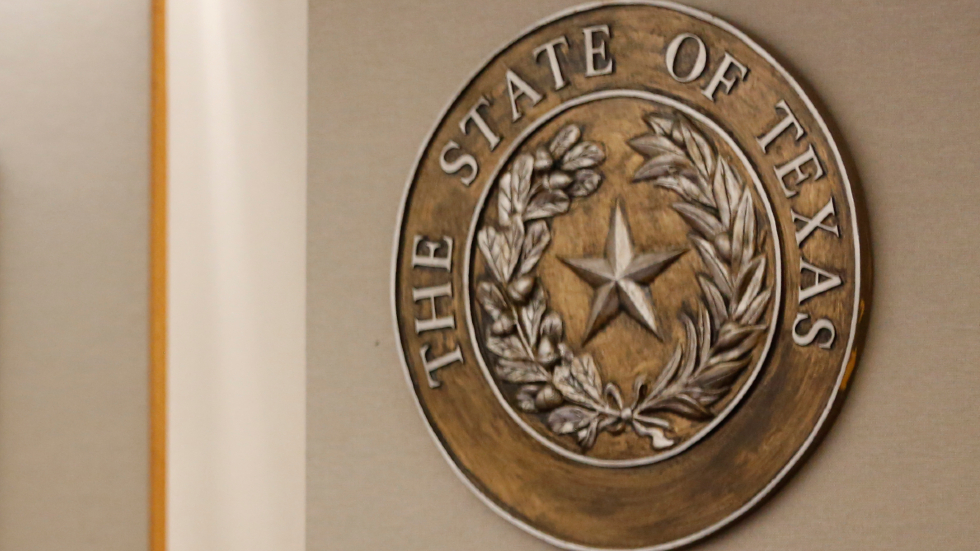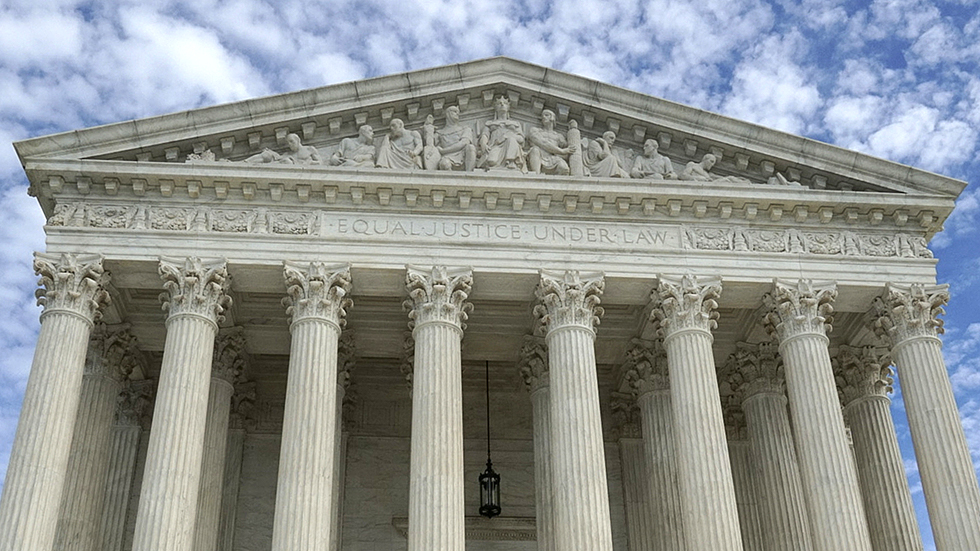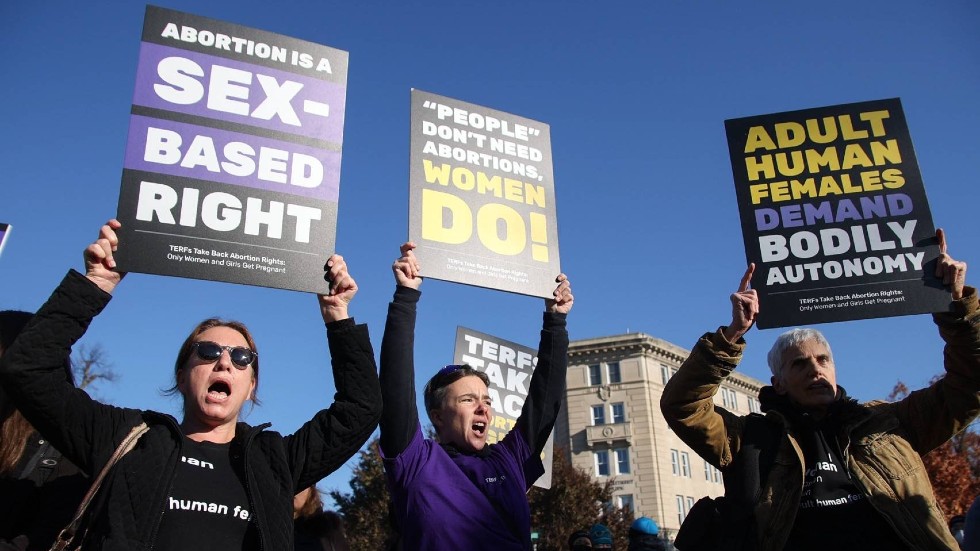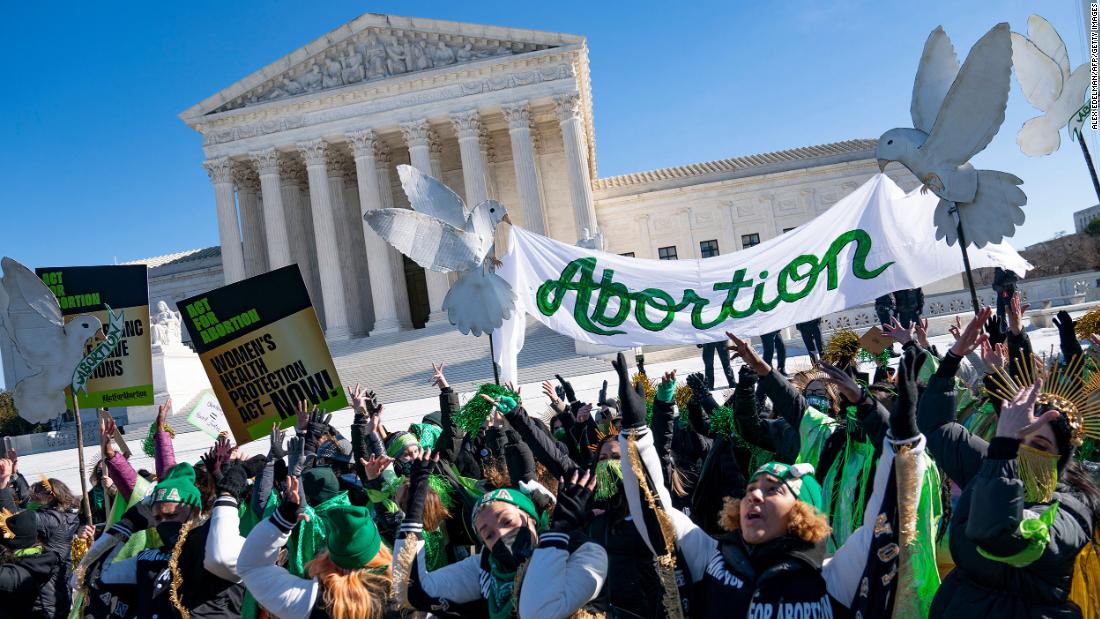Supreme Court allows abortion providers to sue over Texas law
The Supreme Court on Friday cleared the way for abortion providers to pursue a federal lawsuit challenging a restrictive Texas law that bans abortion after six weeks of pregnancy.
The ruling did not deal directly with the ban’s legality, and Texas's law remains intact for now. Rather, the justices determined that federal courts have the power to review their legal challenge against some of the named defendants.
In a separate opinion, the justices dismissed a similar challenge brought by the Department of Justice.
In an 8-1 opinion by Justice
Neil Gorsuch, the majority handed abortion providers a modest win whose practical impact was not immediately certain. Justice
Clarence Thomas wrote separately that he would have dismissed the case.
The ruling allows providers to pursue a constitutional challenge in lower federal courts against state licensing officials that, if successful, could prevent these officials from seeking to enforce violations of the abortion ban.
But some legal experts said the ruling had given Texas a roadmap for blocking these lawsuits.
“If Texas were to revise the statute to make clear that the licensing officials play absolutely no role in implementing the law, then no one in Texas could be sued to enjoin it,” said Erwin Chemerinsky, dean of the University of California, Berkeley School of Law, who called Texas’s abortion ban “blatantly unconstitutional.”
The majority’s ruling dismissed the abortion providers’ suits against Texas’s attorney general, as well as a number of state court judges and clerks and a private citizen.
Legal challenges to the Texas law have been ensnared in thorny questions related to the law’s unique legislative design, which critics have likened to a “bounty” system.
Chief Justice John Roberts, in a separate opinion that was joined by the court’s three liberals, called Texas’s law unconstitutional under Roe v. Wade and other Supreme Court precedent and said the ban has “effectively chill[ed] the provision of abortions in Texas.”
“The clear purpose and actual effect of S. B. 8 has been to nullify this Court’s rulings. ... Indeed, if the legislatures of the several states may, at will, annul the judgments of the courts of the United States, and destroy the rights acquired under those judgments, the constitution itself becomes a solemn mockery,” Roberts wrote, citing an 1809 decision.
“The nature of the federal right infringed does not matter; it is the role of the Supreme Court in our constitutional system that is at stake.”
Roberts and the court’s liberal members were in agreement that abortion providers should be allowed to bring suit against state licensing officials. Contrary to the controlling opinion, though, they also would have allowed Texas’s attorney general and court clerks to be sued.
Justice
Sonia Sotomayor wrote a separate opinion, joined by her fellow liberal Justices
Stephen Breyer and
Elena Kagan, that blasted Texas for operating “in open defiance of this Court’s precedents” and the court’s conservative members for not using Friday’s opinion to block Texas’s law.
“The Court should have put an end to this madness months ago, before S. B. 8 first went into effect. It failed to do so then, and it fails again today,” she wrote, calling the move a “dangerous departure” from precedent authorizing the court to set aside the law.
“Federal courts can and should issue relief when a State enacts a law that chills the exercise of a constitutional right and aims to evade judicial review,” she continued. “By foreclosing suit against state-court officials and the state attorney general, the Court effectively invites other States to refine S. B. 8’s model for nullifying federal rights. The Court thus betrays not only the citizens of Texas, but also our constitutional system of government.”
The Supreme Court on Friday cleared the way for abortion providers to pursue a federal lawsuit challenging a restrictive Texas law that bans abortion after six weeks of pregnancy.The ruli…

thehill.com

 !
!


